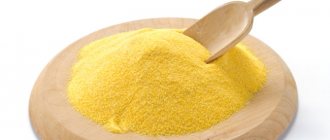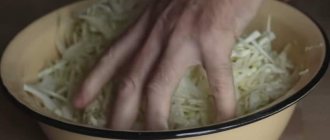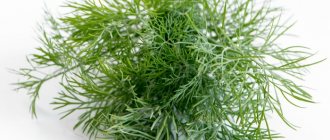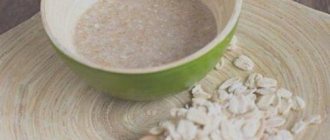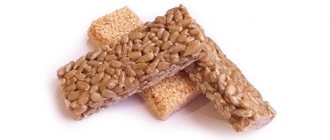Prunes are one of the most delicious, nutritious, and therefore most beloved dried fruits, because in addition to their great taste, this wonderful delicacy is also known for its truly beneficial effect on the intestines. This is why the use of prunes for babies has become so important. It is no secret that babies often have intestinal problems due to artificial feeding, and it is extremely undesirable to stuff a child with medications from an early age. Prunes, thanks to their unique healing properties and high content of vitamins and minerals, perform a number of functions:
- suppresses pathogenic microbes;
- improves bowel function;
- eliminates constipation;
- fights vitamin deficiency;
- strengthens the cardiovascular system.
But the most important thing is that children like its taste and they are happy to “treat” it.
Beneficial properties of prunes
- It contains B vitamins necessary for the nervous system.
- Vitamins A, C and PP help strengthen the child’s body and increase immunity.
- Prunes contain many minerals for the full development of a child’s body: calcium and potassium, phosphorus and sodium, magnesium and iron.
- It is rich in pectin, which improves metabolism and removes toxins from the body.
- Provides the body with citric, oxalic and salicylic acids.
Prunes are rightly classified as a group of powerful antioxidants. This means that it prevents the occurrence of cancer.
At what age can you give prunes to a baby? At about the age of six months, you can include some types of dried fruits in your baby's diet. For example, mothers can turn prunes for their babies into tasty and healthy desserts with their own hands: puree or compote, decoction or infusion.
Prune decoction for babies: benefits and recipes – Health Portal
- And the little one sniffles, and the little one groans, and the poor fellow blushes, trying...
- But he can’t do anything at all, well, he can’t do anything at all...
- Isn’t it true that for us mothers, who are constantly worried about our child, this problem is extremely relevant?
The problem requires drastic action!
Helpful assistant
Indeed, many infants experience problems with digestion and bowel movements. Babies suffer from constipation for various reasons: the mother ate something strengthening, the mixture caused stool retention, the intestines cannot cope with the task (observed in children 5-6 months old in connection with the introduction of the first complementary foods). Is it possible to help a child cope with this difficult situation? Can!
The best helper in the fight against constipation is ordinary prunes. These dried fruits are rich in vitamins, minerals, pectin, and fiber. Thanks to their choleretic effect, the digestion process is activated.
Mom, of course, can eat a few berries herself so that their laxative properties are transferred to the milk and help the young body cope with constipation (although this option is not always effective). What should those whose children are bottle-fed do? An infusion, compote or decoction of prunes (depending on the age of your little one) will help here.
Prunes are good not only for babies, but also for mothers.
Is it possible to give prunes to very young children?
Doctors recommend treating babies with this berry no earlier than 2 months of age (according to their special prescription in case of emergency). A newborn (up to 60 days) baby, or rather his tiny tummy, is not yet completely ready for such food.
The doctor may prescribe a decoction of prunes. By 4-4.5 months you can try the infusion, and after 6 months - compote of prunes or puree from them.
The main advantage and at the same time disadvantage is the laxative effect of prunes (if you overdo it with food, diarrhea cannot be avoided, and as everyone knows from one advertisement, “harmful substances are removed from the body only with the first stool”).
The right fruits
Which prunes should you use for your baby? Very dry, dull and brightly brown berries are definitely not suitable.
Such fruits are dried incorrectly and contain minimal amounts of the necessary substances.
Another thing is black, soft, fleshy and shiny berries - they contain the maximum amount of useful substances and all of them are carefully preserved during proper drying.
Buy only glossy, fleshy fruits.
How to cook prunes correctly
You don’t have to worry too much about preparing an infusion, decoction or compote. Everything is extremely simple.
Infusion (best done in the evening)
- Wash several berries (6-10) thoroughly with boiled water.
- Fill them with 200-250 milliliters of boiling water.
- Cover the berries with a lid.
- Let it sit for 12 hours.
- After time, we filter the resulting infusion.
- In the first half of the day, we give our baby 1 teaspoon of medicinal “water” and watch the reaction.
Simple and effective!
Decoction
- Dried fruits (about 80-100 grams), without seeds, are washed 2-3 times in water.
- Place in a saucepan.
- Fill with two glasses of cold water.
- Place the pan on low heat.
- We are waiting for it to boil.
- The liquid with the berries should boil well for about 10 minutes.
- Remove the pan from the heat.
- Cover the broth with a lid and let it brew a little.
- When the broth has cooled to room temperature, you can give it to your baby, starting with 1 teaspoon (pre-strain while it is hot).
Kids will appreciate the sweet prune broth.
You can first reduce the cooking portion by half.
Prune compote for babies is prepared with the addition of sugar. It may also include dried apricots, raisins, and dried apples.
You will need:
- Water (1 liter hot);
- Prunes (about 200 grams) or 200 grams are divided into equal parts (50 - dried apricots, 50 - apples, raisins, prunes);
- Sugar (1/4 cup).
Compote is recommended for older children.
How to cook:
- Pour hot water over dried fruits and let them stand for 5 minutes.
- Then rinse several times in warm water.
- Pour sugar into the pan.
- Fill with water.
- Mix sugar with water.
- Add dried fruits and put on fire.
- Cook for 15-20 minutes after boiling (until the fruit is well softened).
- Strain the cooled compote and give it to the baby.
Compote, decoction or infusion?
Many mothers will probably be interested in the question: what is the difference between prune decoction and infusion and what will help the baby more effectively?
Infusion
- can be cooked without boiling (more nutrients are retained);
- strain only when cold;
- quickly absorbed;
- does not last long.
It doesn’t matter whether you choose a decoction or an infusion for your baby. The main thing is that the first time you give it to your baby, you do not forget to dilute it a little with boiled water.
For preventive purposes, give your child a spoonful of prune infusion.
Compote can be prepared for a child 6 months and older. It is most effective against constipation. However, the sugar included in its composition can provoke excessive gas formation (as well as a large amount of prunes themselves), and dried apricots can cause an allergic reaction. However, dried apricots and sugar can be used in minimal quantities or eliminated altogether.
Moms about painful issues
Alla:
“I never gave my Artyom Espumisan or Plantex. Until one and a half months they drank dill water and swam in a warm bath. And at 2 months he didn’t walk for almost 6 days.
I decided to make a decoction: 2 prunes per glass of water. Boiled for 10-15 minutes and strained. The result is a weak, refreshing and completely unsweetened first compote.
I gave it to my son to drink and after about half an hour we were able to do everything. This decoction is a good thing.”
Marina:
“My son is 6 months old. The benefit from the decoction is zero. And it doesn't help me either. I already drank and ate - it’s all the same ... "
Albina:
“We’ve been drinking for two whole days, there is no rash or redness. The good news is that the gases have become much easier to move away, the baby has become calmer, but he hasn’t pooped yet.
Preparing the decoction, as it turns out, is very simple: 3 berries per 150 grams of water. I cook for 5 minutes. I mix the finished broth with the mixture (20 grams per serving).
The first time I started with a tablespoon, then I gave 10 milliliters. My shket eats it with pleasure.”
Julia:
“My twins are one year and one month old. We eat mother’s breast, and other food, of course. One has problems with her intestines (she rarely runs around for her age). I dared to try the infusion - I don’t want to give laxatives. In general, a miracle happened. Everything got better after three days. Now we’re playing happy!”
conclusions
- Prunes are beneficial in small quantities.
- Not every berry has the necessary properties.
- You can use a decoction or infusion only from two months.
- The most effective is compote.
- Fruits can trigger allergies.
- Helps many, but not everyone.
Diana Bal
2014-03-08
baby
Source:
Prunes for babies for constipation: is it possible to make a decoction while breastfeeding?
The healing properties of prunes have been known for a long time; for example, in folk medicine it is used as a laxative. Decoctions, infusions, compotes are even given to infants for medicinal and health purposes.
Prunes have a large amount of vitamins, stimulate the gastrointestinal tract
The benefits of prune decoction for children
For a small child, prunes are a healthy product that practically does not cause allergic reactions. Pediatricians allow it to be administered in small quantities as an additive in complementary foods from the second half of the year. It is most suitable for babies who often have constipation; in such cases it is used as a mild laxative.
Despite the undoubted benefits, nutritionists advise using prunes with caution. A child may experience digestive disorders due to vitamin-rich fruits. Therefore, at the very beginning, prepare a weak decoction of prunes for babies.
For your information. Boiled fruits can be given to the baby for health improvement at four months, and purees and compotes for nutrition at six months. Pediatricians warn that prunes should not be included in the first complementary foods, even if the baby is bothered by constipation. This can only be done after vegetables.
Composition and nutritional value
Dried plums are valued for their large amounts of ascorbic acid, vitamins E and B, phosphorus, copper, calcium, and magnesium. It contains enough citric, malic and other acids, as well as fructose and glucose, necessary to replenish energy.
The ballast substances of dried fruits stimulate intestinal activity and are a natural remedy for constipation, which does not cause addiction or side effects.
What is prune decoction used for?
Prune puree for babies - how to introduce it into complementary foods
Wanting to diversify the baby's diet, the mother should take into account that the functioning of the gastrointestinal tract has not yet been fully established, so loose stools or constipation often occur.
Sometimes the baby cries, and the parents cannot understand what is happening.
Pediatricians explain that the baby may be bothered by flatulence and bloating, and advise introducing dried fruits in a light form, such as compote, decoction or infusion.
Compote and infusion of prunes support the activity of the baby’s gastrointestinal tract
Prune compote
Prune compote is considered a good remedy for treating constipation in young children. It is recommended that after the baby gets used to the one-ingredient drink, combine it with other dried fruits: dried apricots or raisins.
Prune infusion
Prune infusion is a unique remedy for combating many types of bacteria. Pediatricians say that the beneficial substances in the infusion have a positive effect on the functioning of the cardiovascular system.
Important! Explaining whether prunes can be administered when breastfeeding a newborn, pediatricians do not prohibit using it as an infusion. However, they warn that excessive consumption of dried fruits causes diarrhea.
Is it possible to give a decoction while breastfeeding?
Hercules decoction for infants with milk and water
The reason why dried fruits are not recommended as the first complementary food during breastfeeding is considered to be increased gas formation in the baby, accompanied by abdominal pain.
Sometimes situations arise in which you need to help a baby suffering from persistent constipation.
In case of emergency, if a baby is constipated, a decoction of prunes in small doses (half a teaspoon) will help so as not to cause digestive upset.
Advice. It is not recommended to give the decoction to babies under one year of age who are on breastfeeding, with frequent loose stools and elevated hemoglobin levels. In other cases, these dried fruits bring only benefits.
At what age should you give the decoction to your baby?
Chamomile tea for babies from 0 months
When answering mothers about how many months to give prune decoction to a child, some pediatricians do not support the early introduction of dried fruits into the diet. They believe that if the baby is on guard, complementary feeding is not needed until six months.
WHO recommends at what age prunes can be given to infants - at six months. Moreover, before introducing this product, which has a pleasant taste, the baby should try other fruits and vegetables.
Source: https://med-oberon.ru/travy/otvar-iz-chernosliva-dlya-grudnichka-polza-i-retsepty.html
Contraindications
Having previously consulted with the local pediatrician, prunes or their decoction can be included in the baby’s menu, but not earlier than three months, since an allergy may develop due to the premature introduction of dried fruits. The reasons for early complementary feeding may be problems with stool, for example, with regular constipation, which causes anxiety for the child, or with severe vitamin deficiency. Before you start using prunes, you should make sure that the child has no contraindications: allergies or diabetes. A good specialist in this case will help assess your health status and give competent advice.
Useful: How, when and in what quantities to introduce egg yolk into complementary foods?
Prune decoction for babies with constipation, recipes – Baby
Prunes for constipation in children are a safe folk method for eliminating stool retention. A decoction or puree is prepared from the dried fruit and taken for up to 3 days. The method does not cause negative consequences for the baby's health.
Will prunes help a baby with constipation?
Delayed bowel movements have a negative impact on the child’s well-being. Toxins accumulate in the intestines, increasing the risk of food refusal and weight loss, which poses a danger for children in the first months of life.
Constipation occurs due to impaired functioning of the intestines or stomach, diseases of the gastrointestinal tract, a violation of the mother's diet, a lack of vitamins in complementary foods, or the presence of toxic substances in food or breast milk.
Prunes, a product that has undergone a drying process and has laxative properties, can help cope with the problem of constipation in children. The fruit contains fiber, pectin, organic acids, minerals, vitamins and tanning components, which help to establish the process of natural cleansing of the intestines from feces.
Doctors recommend taking prunes during breastfeeding for constipation of a newborn mother as decoctions and infusions. The natural product can be eaten in the amount of 1-2 fruits in the morning to monitor the baby’s reaction.
Dr. Komarovsky recommends that from the age of 6 months, if constipation occurs, the baby should be given prune puree or compote cooked with the addition of dried fruits in the morning.
Recipe and instructions for use
Preparing a decoction or puree of prunes for children with constipation is a simple matter; it is important to observe the quantity of ingredients and dosage when consuming. If it is exceeded, it may cause severe loosening of stools and provocation of diarrhea in the baby, causing harm to the body.
Before including prunes in the diet of children to eliminate constipation, you must first consult with a doctor and conduct a diagnosis to determine the cause of stool retention, undergo the necessary studies and tests. In some cases, it may be necessary to prescribe medications; the doctor will help determine the indications and contraindications for prescribing dried fruit in the child’s diet.
Prune puree
For children under 4 months of age, it is not recommended to use dried fruit puree; you should give preference to a decoction of berries or consult a doctor for a recommendation for medicinal products. The gastrointestinal tract is not yet formed to accept complementary foods and sweet prunes, which can aggravate constipation or cause poisoning in the baby.
It is preferable to start introducing prune puree into the diet after 6 months and only after introducing more hypoallergenic vegetables and fruits. After 1 year, to relieve constipation, it is possible to use a salad of plums and figs or a combination of dried fruit with kefir or other fermented milk products.
You can make a puree for constipation from dried fruit yourself or buy a ready-made jar in the store. Many baby food manufacturers include prunes in milk and dairy-free cereals.
Homemade puree recipe for children:
- Pour 4-5 washed prunes into 100 ml of warm boiled water overnight;
- In the morning, peel the berries and grate them on a grater or through a sieve;
- Mix the constipation pulp with a small amount of water and put on low heat;
- bring to a boil and turn off.
Only fresh puree can be eaten by a child; the finished product should not be stored in the refrigerator for more than 24 hours.
- The course of treatment for constipation in children is determined by the doctor, but not longer than 2-3 weeks of continuous use to loosen stools, after which you should take a break.
- Taking prune puree from 6 months is 1 teaspoon per day, gradually increasing the dose; by 12 months, for constipation, the daily dose can be 80 g.
When does the remedy work and to whom is it prohibited?
The effect of taking compote or pureed prunes to relieve constipation is individual; in some children, softening of the stool is observed during the day, in others it may take 2-5 days before the laxative effect of the dried fruit.
Before using dried fruit, you should consider contraindications to using berries for a child with constipation:
- individual intolerance to prunes; if atypical reactions occur - abdominal pain, vomiting, diarrhea, you should immediately seek qualified medical help;
- allergic reaction in children in the form of rashes on the body, peeling of the skin or provocation of atopic dermatitis;
- the presence of severe diseases of the gastrointestinal tract and other organs - ulcerative processes, congenital pathologies, diabetes mellitus;
- if the child has colic and the mother has flatulence, prunes aggravate the problem, causing fermentation with increased gas formation.
You should not overuse prunes, as it can worsen constipation. If problems with bowel movements occur, the best option is to seek help from a doctor, adjust the drinking regime and diet of the nursing mother and child.
The article was approved by the editors
Source:
Prunes for constipation in infants: compote, decoction, puree and infusion
Immature intestines in infants often cause problems with bowel movements. Prunes during constipation in a baby are a time-tested way to cope with the problem. But dried plums need to be introduced into the baby’s diet gradually. At what age is it permissible to give prunes and in what form?
Healthy dried fruit
Prunes are the dried fruits of sweet varieties of plums. First, the fruit is blanched in boiling water and then steam-dried. As a result of such processing, the beneficial properties of plums are preserved.
Prunes contain laxatives - sorbitol, phenolic complexes and 7% dietary fiber. Thanks to this, the dried fruit is a good natural laxative with a mild effect.
It’s easy to choose healthy prunes by paying attention to their appearance. Buy matte black berries. Otherwise, you will encounter an unscrupulous manufacturer:
- A dark gray shiny surface indicates that the fruit has been treated with glycerin.
- Black, shiny dried plums look appetizing, but they are often given their marketable appearance by being coated with fat of unknown origin.
- A brown tint indicates that the berry was scalded with boiling water for the purpose of disinfection and longer storage. Such processing negatively affects the taste of dried fruit - it begins to taste bitter.
In prunes with pits, more nutrients are retained, because the top layer is not damaged. Avoid smoked plums - they are smoked using liquid smoke, which is a carcinogen.
It’s easy to check whether the dried fruit you bought is processed or natural: soak the berries for half an hour in cold water. “Correct” prunes will turn white in places when soaked, but processed ones will remain completely black.
At what months are prunes allowed to be given to children?
Puree dried fruits for constipation are given to babies from the age of six months and later. Prunes should be introduced into complementary foods gradually, starting with a few grams at the tip of a teaspoon.
The product is considered non-allergenic, but a reaction often occurs to the substance with which the fruit was treated during preparation.
Prunes can also cause excessive loosening of stools, so a child under one year old should not eat more than 5 g (1 teaspoon) of dried fruit.
Infants are given an infusion or decoction of prunes no earlier than three months. Introduce it into your diet carefully, because it is more likely a medicine than a complementary food, and the dose should be medicinal - no more than 5 ml at a time. It is better to give the infusion and decoction using a syringe (without a needle, of course) or a teaspoon. The “medicine” turns out sweet, and the infant drinks it with pleasure.
If a mother consumes dried fruit, the laxative properties of prunes are transmitted to the breastfeeding newborn through milk. But berries must be consumed with caution so as not to cause negative reactions in the baby.
Compote
Prune compote for constipation is prepared with sugar for babies, so it is recommended for babies no earlier than 6 months. Additionally, you should add dried apricots, raisins, dried apples, and pears to the drink. Compote is cooked according to the same principle as any other:
- 10 pieces. Rinse prunes with warm water.
- Place dried fruits in a saucepan and add 300 ml cold water.
- Bring the drink to a boil and add 50 g of sugar.
- Cook the compote over low heat until the fruit is completely softened - 20-25 minutes.
- Cool the drink.
Source: https://xn—46-mddb2ckdn.xn--p1ai/medicamenty/otvar-iz-chernosliva-dlya-grudnichka-pri-zapore-retsepty-prigotovleniya.html
Choosing prunes for babies
Having made sure that the use of dried fruits will only benefit the child, it is necessary to take into account additional important factors.
- Product quality.
Prunes must be fresh, matte, without signs of smoking, without a glossy sheen and certainly black in color. Sometimes allergies occur to toxins and not to the product itself. In order to check the quality of prunes, you should soak them in water for half an hour. If the fruit has turned white in places during this time, it means it is natural, otherwise there is chemical processing, which is absolutely not suitable for baby food.
- Minimum portions.
Each new complementary food is fraught with uncertainty, so it should be introduced in grams and drops, and preferably in the first half of the day, so that you can observe the reaction. Allergies usually appear in the late afternoon, when sensitivity to allergens is at its highest.
When can you give prunes?
It is recommended to give complementary foods with prunes from 6 months of age. However, infants are often tormented by constipation, especially for bottle-fed babies. In this case, dried berries can and should be consumed earlier. Doctors allow prunes to be given to children from 3 months of age.
But dried fruits can enter the baby’s body not only through complementary foods. The main substances contained in dried plums are transmitted through breast milk, so mothers of newborns should also not eat this product until the baby is 3 months old.
How to cook prunes for babies?
Recipes for preparing prune dishes for babies are not particularly difficult for mothers. The easiest way is to prepare an infusion or decoction.
Infusion
Ingredients:
- water200ml;
- prunes 10 pcs.
To prepare it, you need to pour boiling water over thoroughly washed, pitted dried fruits in an enamel pan and leave for several hours with the lid closed. You can leave the infusion overnight, and in the morning it will be ready for use.
Decoction
To prepare the decoction, it is necessary to pour the peeled and washed berries with cold water in the same proportion as in the infusion, bring to a boil, and then cool. You can add a little sugar to it to taste, but most often this is not necessary, since the prune decoction itself turns out to be quite sweet.
Compote
Kids love compote very much, they drink it with great desire, and in winter its vitamin value is especially high. To prepare baby plum compote you will need the following ingredients:
- 10-15 pieces of prunes;
- 300ml water;
- 50 grams of sugar.
It is necessary to thoroughly rinse and peel the berries. Place them in a saucepan, add cold water, boil, then add sugar to taste. Cook prune compote for babies for at least 20 minutes over low heat, and before using it should be cooled to room temperature.
When can you use the decoction?
If you want to use prune decoction for constipation, then remember that the minimum age when this remedy can be given to a child is 2 months. And the smaller your baby, the less amount of broth he will need - start with no more than half a teaspoon, observing the body’s reaction. Of course, an “overdose” will not cause much harm, but good diarrhea may well cause, as well as an allergic reaction, if the child is predisposed to them.
And if your child is already over 6 months old and is actively trying complementary foods, then you can use not even a decoction, but compotes and prune puree. Although of all these “dishes” the decoction is still the mildest and safest option, it can be given even earlier than the first complementary feeding.


